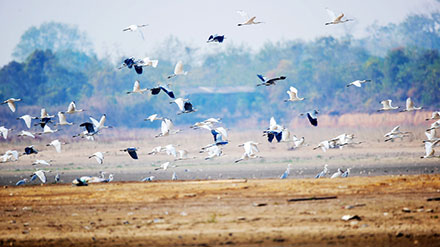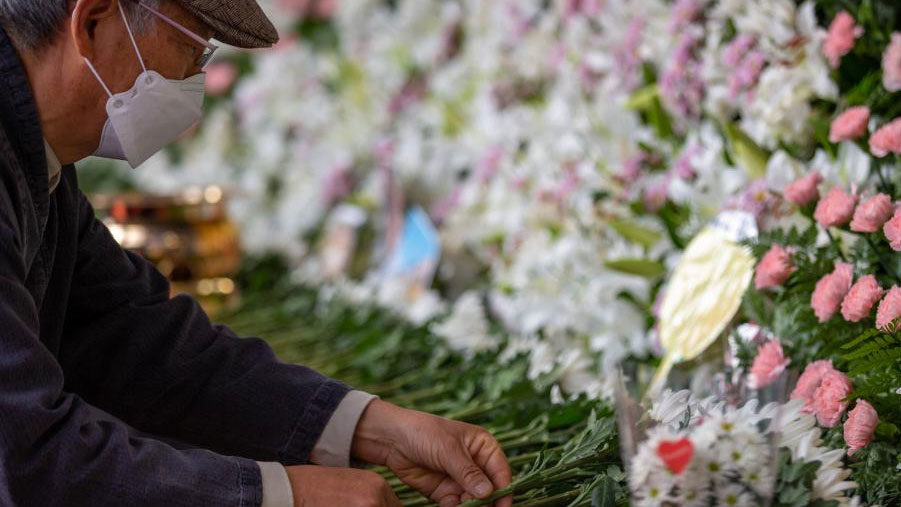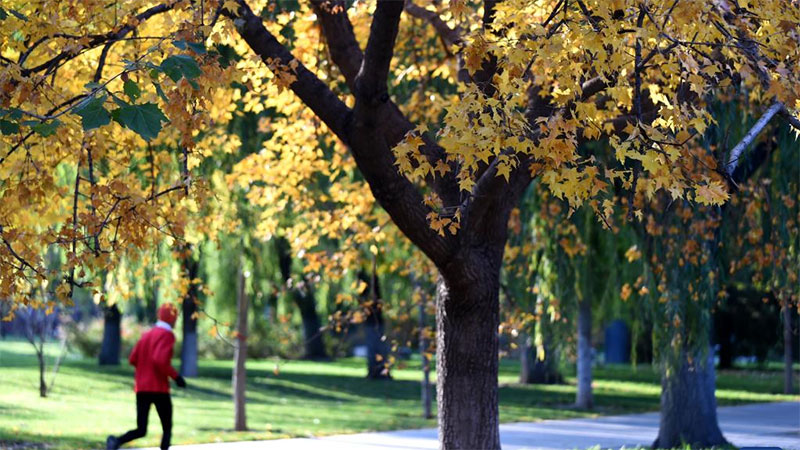At least two thirds of Australians have had COVID-19: national antibody studies
SYDNEY, Nov. 4 (Xinhua) -- Two complementary nationwide surveys showed at least two-thirds of Australians have been infected by COVID-19, including children and adolescents.
The national paediatric serosurvey, led by the Paediatric Active Enhanced Diseases Surveillance (PAEDS) network and the National Center for Immunisation Research and Surveillance (NCIRS), tested two types of antibodies in the blood samples of children aged 0-19, collected between June and August 2022.
The first type, antibody to the nucleocapsid protein of the virus, indicates past infections while the other type, antibody to spike protein, indicates past infection and/or vaccination.
The study found that about 79 percent of unvaccinated children aged from one to four have been infected with the virus, while 67 percent of children aged from five to 11, many of whom have been vaccinated, have the past infection.
Among the adolescents aged from 12 to 19, about 70 percent have been infected by the virus.
"Overall, this study tells us that at least two-thirds of children in Australia have had COVID-19. This is more than double the number of cases reported based on nose and throat swab testing for the virus," said Archana Koirala, infectious disease specialist at NCIRS.
"This is expected, since many children have either mild or no symptoms and are therefore not tested for the virus."
Another adult survey, jointly conducted by the Kirby Institute at the University of New South Wales (UNSW) and NCIRS, was based on 5,005 de-identified residual blood donation specimens received between Aug. 23 and Sept. 2 this year.
It shows that at least 65 percent of adults had antibodies indicating previous COVID-19 infection, a rise of about 20 percent compared to a previous serosurvey study three months earlier.
"These results provide further quantification of the size of the BA.4/5 Omicron wave during the winter months in Australia," said Professor John Kaldor from the Kirby Institute.
"Serosurveys continue to provide crucial information to support our efforts to understand the spread of SARS-CoV-2, and the impact of vaccination and infection on antibody levels in the community," he added.
Photos
Related Stories
- Australia lifts cash rate to 2.85 pct amid 32-year-high inflation
- End of federal hospital funding for COVID-19 looming disaster: Australian medical association
- Aussie state to introduce Aboriginal language learning at schools
- New 10-year plan to end domestic violence in Australia
- Lack of shared curriculum planning creates "lesson lottery" in Aussie schools: report
- Young Aussie gamers may be targets of extremist recruitment: police
Copyright © 2022 People's Daily Online. All Rights Reserved.









